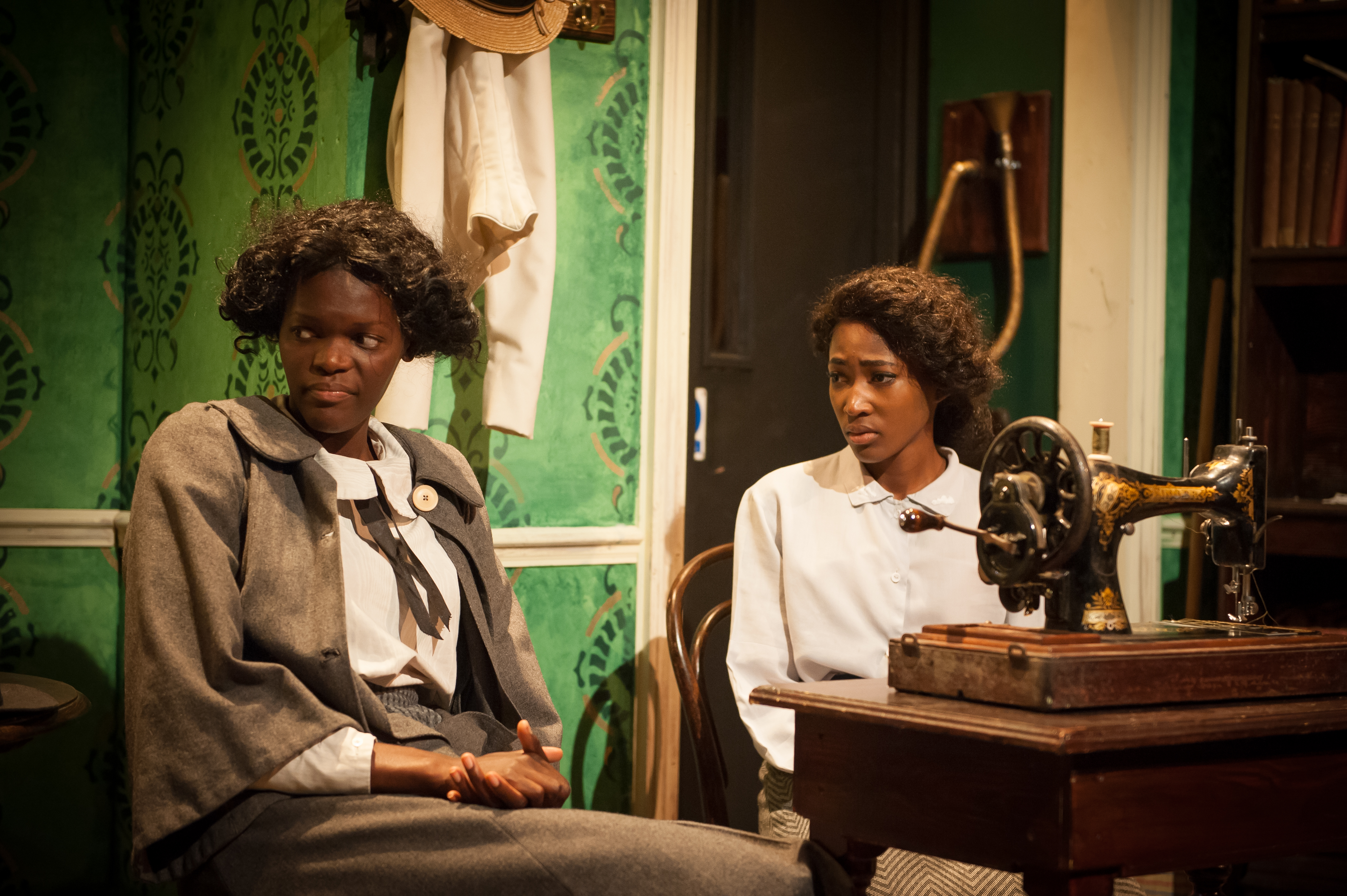Rachel, Finborough Theatre, SW10
reviewed for The Times, 8 October 2014

Adelayo Adedayo and Sheila Atim in Rachel
Few health warnings are as ominous as the blurb “rarely performed play”. Usually, they’re rarely performed for good reason. The first professionally staged play by an African-American woman, Angelina Weld Grimké’s Rachel, was radical in 1916. As a testament to the black experience it is still a vital historical document, but a lost triumph of theatrical artistry it ain’t.
Instead, Rachel, the story of a girl’s loss of faith in the face of racism, is something of a mess. Act One, awash with Dickensian sentimentality, creaks through scenes of Rachel’s domestic devotion to her widowed mother (Miquel Brown) and virtuous brother Tom (Nakay Kpaka). By Act Two, neither child can find a job, their hard-won education wasted in the face of a white stranglehold on the professions. Counselled by Rachel’s suitor (a slick, sympathetic Zephryn Taitte), Tom comes to terms with a life in menial service. Rachel’s story, however, lurches into melodrama, her fixation on motherhood increasingly psychopathic.
Adelayo Adedayo is engaging as Rachel, but she’s handicapped by some of the most unconvincing and expository dialogue you’re likely to hear in a professional theatre. Rachel takes a shine to a neighbour’s child; the curtain rises four years later to reveal her reminiscing to her mother on the unlikely fate that leaves the boy now living with them. “Why, of all the people in this apartment-house, should Jimmy’s father and mother be the only two to take the smallpox and the only two to die? How queer.” If William McGonagall wrote African-American prose drama, it might sound a little like this.
This isn’t the fault of the director Ola Ince, who deserves kudos for bringing Rachel to our attention. There’s value alone in staging the physical reality of African-Americans in the so-called Progressive Era: we’re not used to seeing black girls dressed like Edith Wharton heroines. But for early African-American literature, read Langston Hughes or Zora Neale Hurston. And leave Rachel to the archivists.






